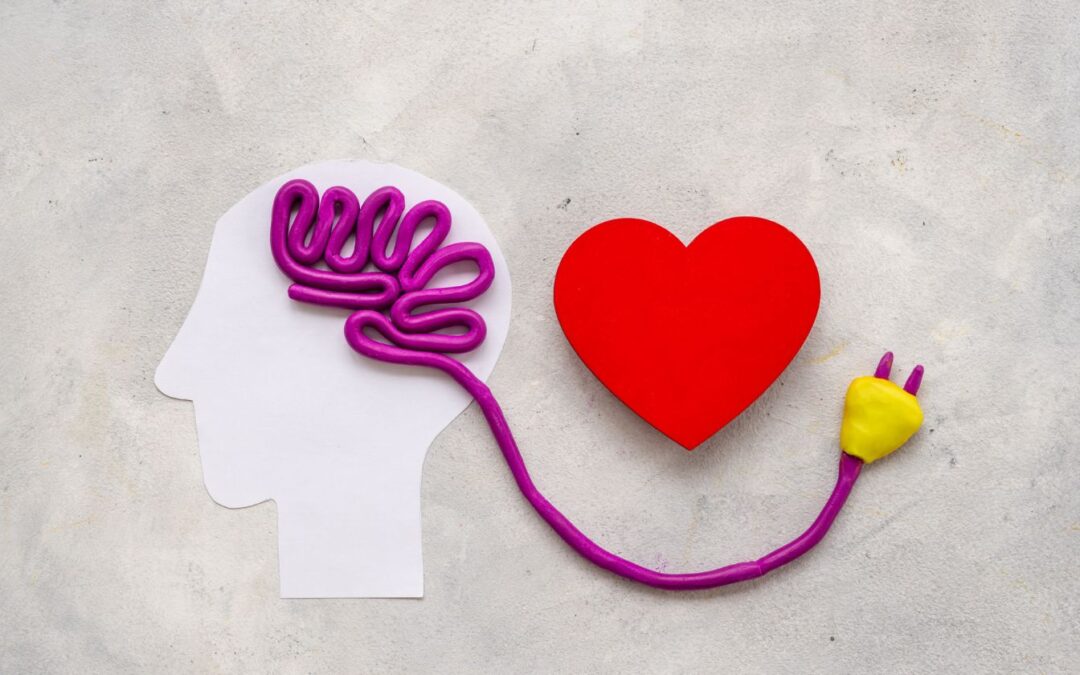Millions of people worldwide face dangerous effects from their substance abuse problems. People who consume either drugs or alcohol in excessive amounts face health problems in both their body and mind. Over time, addiction takes control.
Human mental state maintains a strong relationship with substance abuse problems. People turn to drugs or alcohol to manage their stress as well as their anxiety and trauma. The harmful cycle becomes worse as time advances.
The Psychological Effects of Substance Abuse
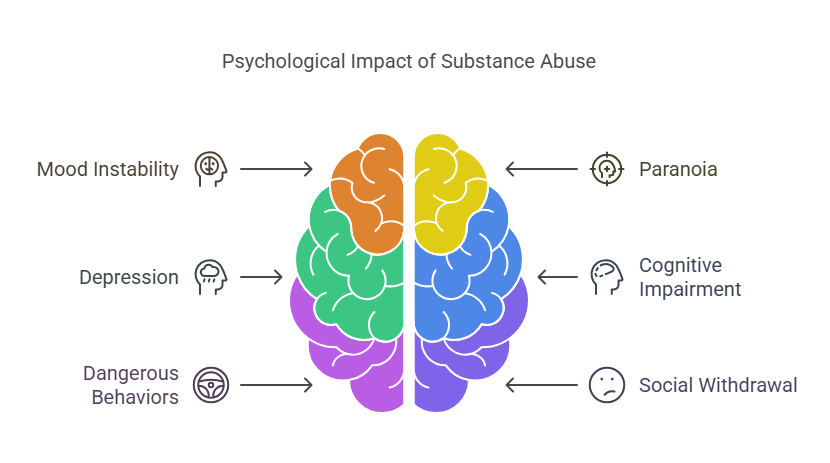
Repetitive substance abuse will result in major psychological damage to the individual. The drastic changes drugs produce in brain activity cause various mental reactions including mood instability and paranoid states together with depressive symptoms. The emotional instability that numerous individuals face makes everyday tasks highly demanding.
Addiction affects cognitive functions. Memory failure together with judgment problems and disorientation frequently occur as addiction symptoms. Substance abuse makes it harder for people to make coherent decisions which leads them toward dangerous social behaviors and social withdrawal.
The Role of Stress and Anxiety in Addiction
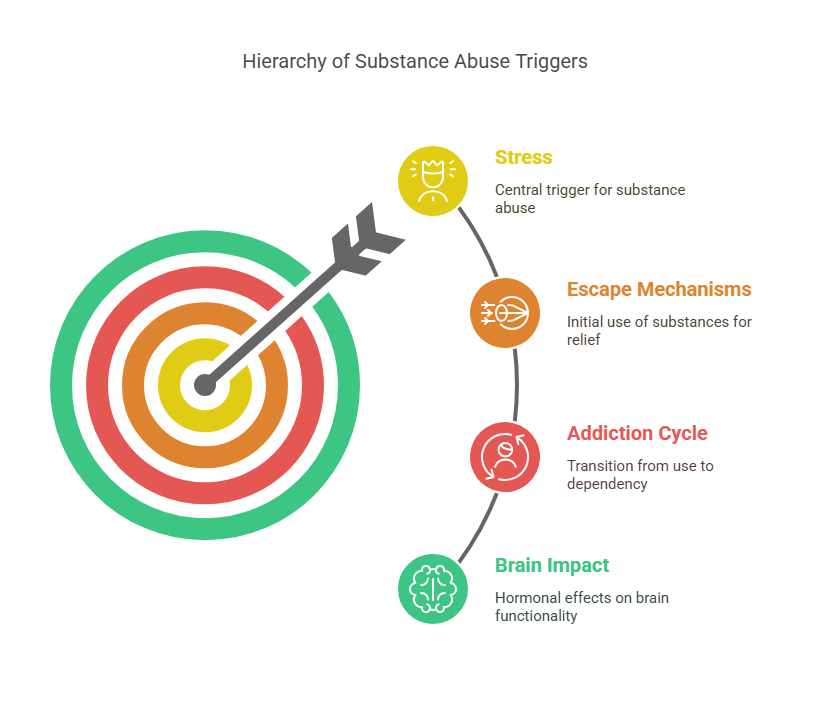
The main element which pushes people to start abusing substances is experiencing stress. Peope choose to deal with their overwhelming pressures from work relationships or financial problems by using drugs or alcohol as escape mechanisms.
The extended levels of stress elevate the cortisol hormone creating damaging effects on brain functionality. People who experience overwhelming stress routinely use objects to ease their strain and this time-sensitive pain control path becomes addictive.
The Path to End Addiction Starts with Obtaining Expert Professional Help
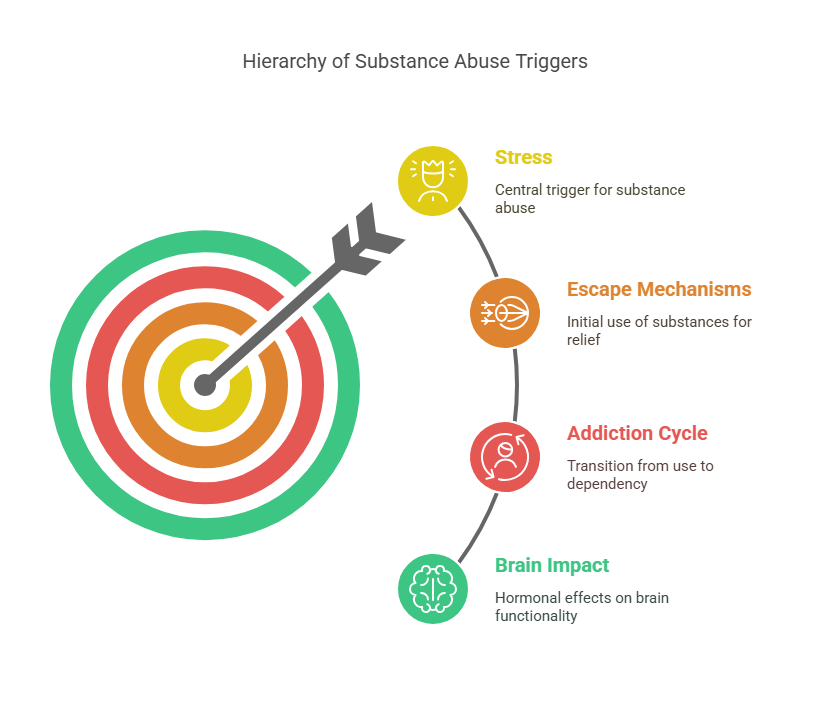
One must seek help from professionals to begin recovery. The combination of therapy sessions with counseling and rehabilitation programs gives people essential resources to eliminate addiction while rebuilding healthy mental states.
If you’re running a business and need technical assistance, consider hiring professionals. Hire SaaS developer to optimize your digital platforms while you focus on mental well-being and recovery.
How Depression Fuels Substance Abuse
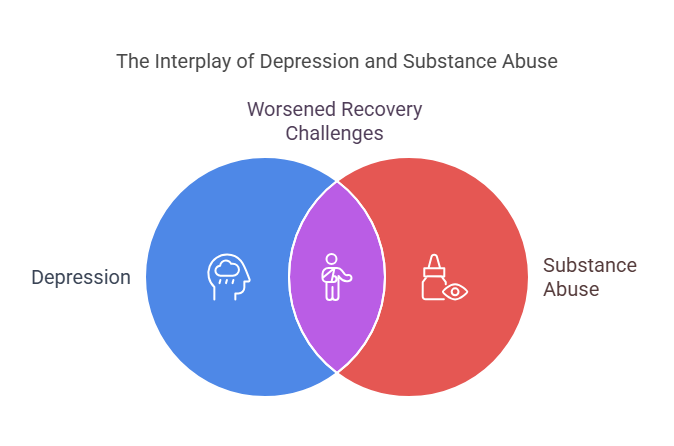
People usually suffer from depression simultaneously with substance abuse problems. Substance abuse develops through people who suffer from depression using alcohol or drugs to resist emotional suffering.
Alcohol together with other depressants creates worsening effects on mood disorders. Addiction penetrates and intensifies depressive feelings so people find recovery even more challenging.
Addiction vs. Dependency: Key Differences You Should Know
The Connection Between Substance Abuse and PTSD
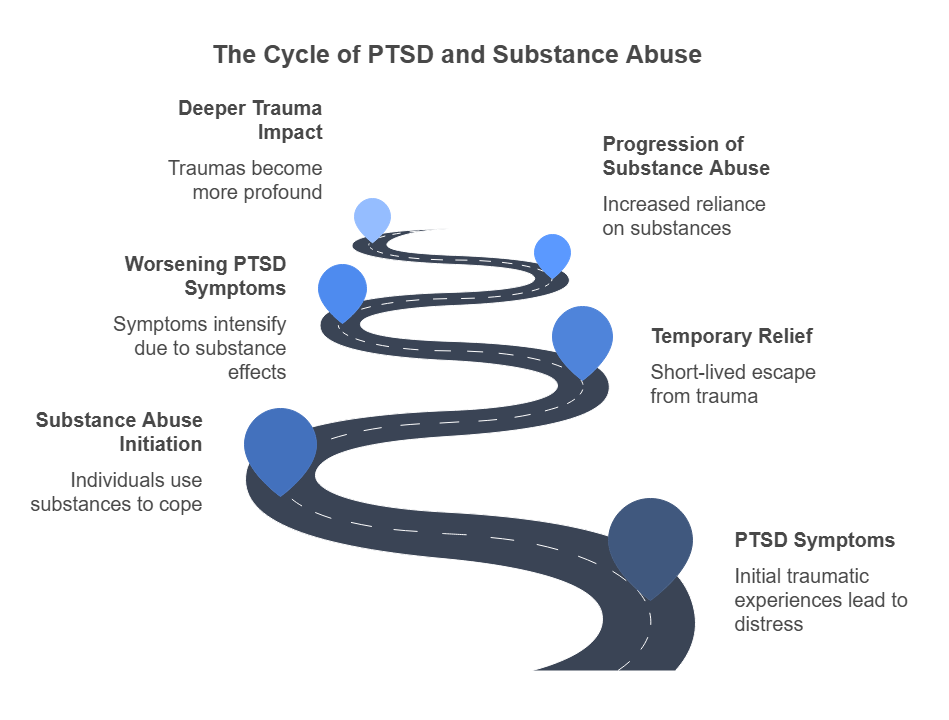
Substance abuse becomes more likely among patients with Post-Traumatic Stress Disorder (PTSD). People with PTSD often turn to drugs or alcohol as an attempt to block traumatic memories but this temporary effect does not resolve their condition.
The progress of substance abuse leads to increased severity of PTSD symptoms. The symptoms get worse because living through flashbacks and experiencing nightmares and experiencing emotional deadening occurs more often. The process of addiction renders former traumas deeper than before the initial abusive experiences.
Holistic Treatments of Nasha Mukti Kendra Emerge as Effective Solutions for Drug Abuse
Substance Abuse and Bipolar Disorder
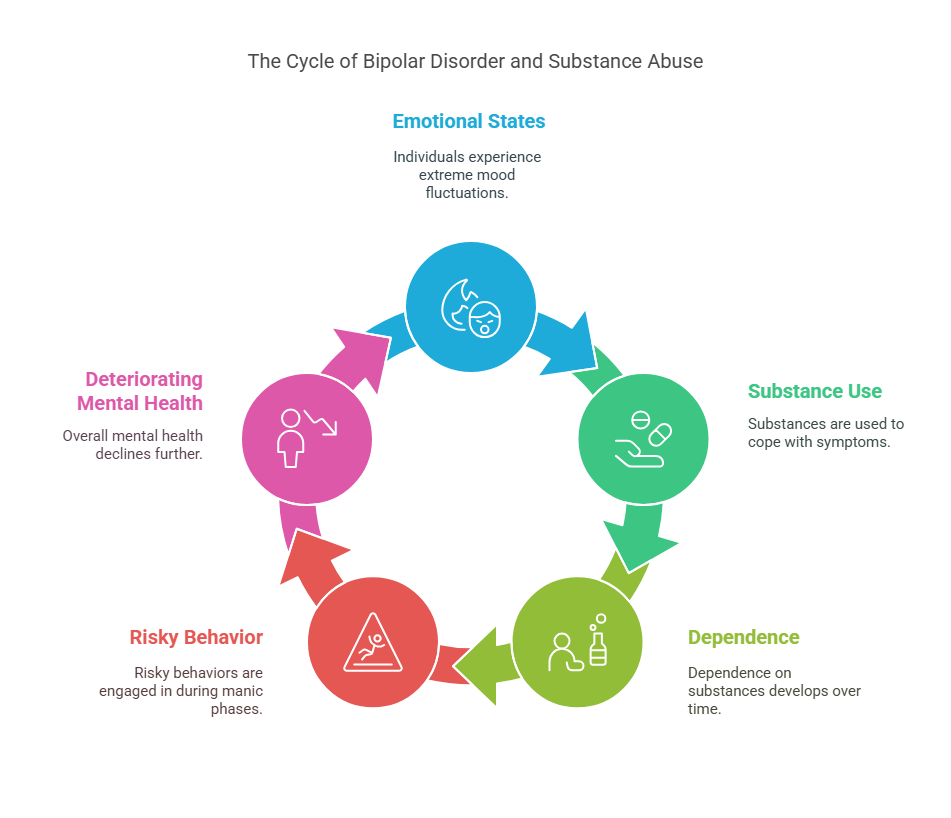
The medical condition known as bipolar disorder creates drastic shifts between different emotional states. The act of using substances to handle bipolar disorder symptoms frequently results in dependence on them for many bipolar disorder patients.
People with manic disorder may take dangerous risks when consuming drugs. With depressive states people tend to find relief from substances. Such a pattern between substances and bipolar disorder makes treatment difficult while simultaneously deteriorating mental health as a whole.
Picking the Right Nasha Mukti Kendra Depends on the Severity of the Addiction
Social Isolation and Mental Health Decline
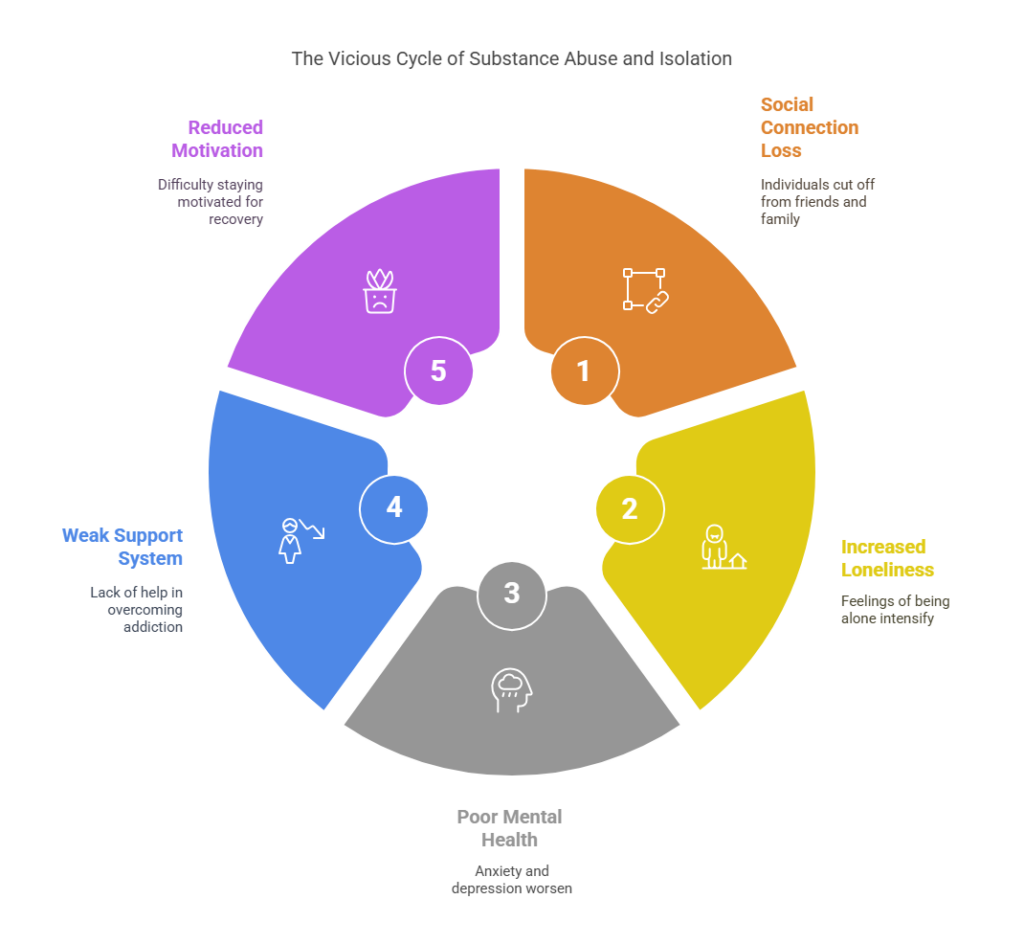
Substance abuse results in a natural tendency for individuals to cut off their social connections. Substance abuse causes individuals to drive away their relationships so they experience mounting feelings of loneliness making their mental health seriously worse.
A weak support system makes the challenge of overcoming addiction stronger. The process of social isolation triggers increased anxiety levels and depressive symptoms in people who are less likely to reach out for help and less able to stay motivated toward recovery.
Medication-Assisted Treatment for Addiction
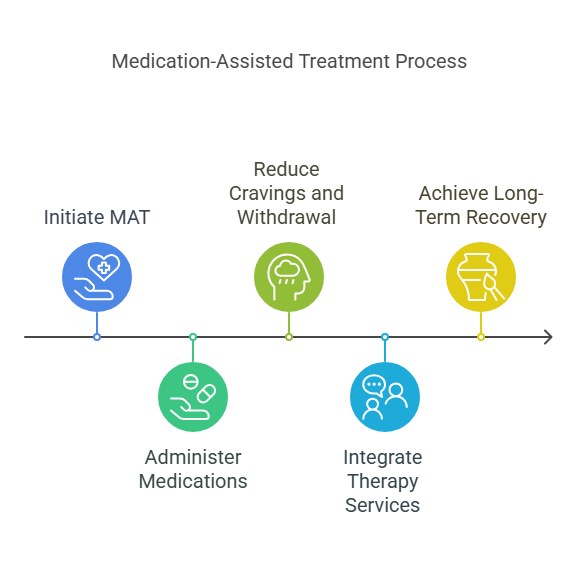
Medical assistance during treatment (MAT) proves to be an effective procedure in helping people deal with addiction. Absolute long-term recovery rates improve through medication treatments that reduce craving and withdrawal symptoms through use of methadone and buprenorphine.
The results of MAT treatment are best achieved when patients receive simultaneous therapy services. Combining counseling with medications enables people to solve addiction problems at their base while medication supports the recovery journey allowing better control of mental balance.
How to Choose the Best Nasha Mukti Kendra in Shimla
The Power of Therapy in Addiction Recovery
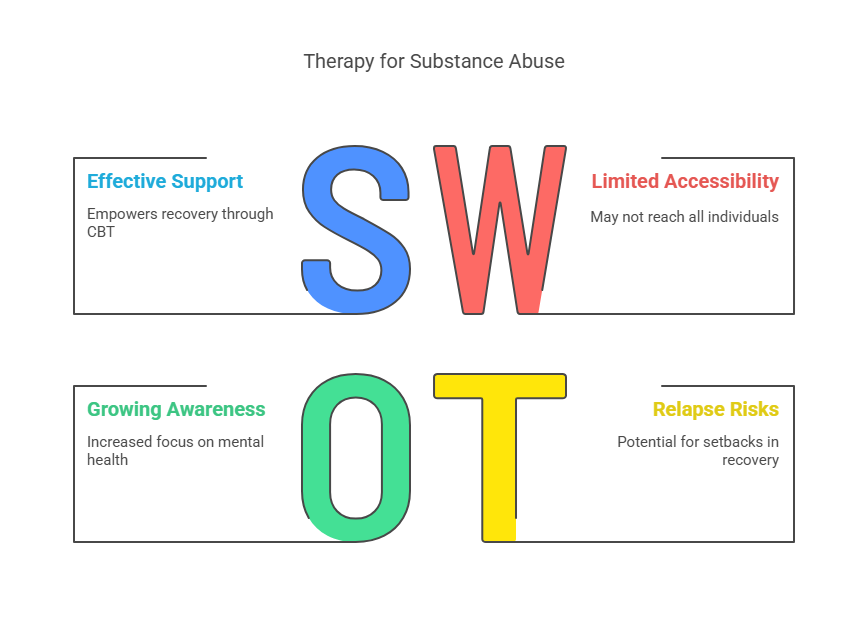
Therapy functions as an essential instrument to help people conquer substance abuse issues. The core element of Cognitive Behavioral Therapy (CBT) guides substance users to detect their triggers by teaching new methods that do not involve using alcohol or drugs as coping mechanisms.
Group therapy enables members to receive emotional support from one another. Having mutual communication with other addiction survivors creates a supportive environment which eases the recovery process and combats social isolation effectively.
Lifestyle Changes for Mental and Physical Well-Being
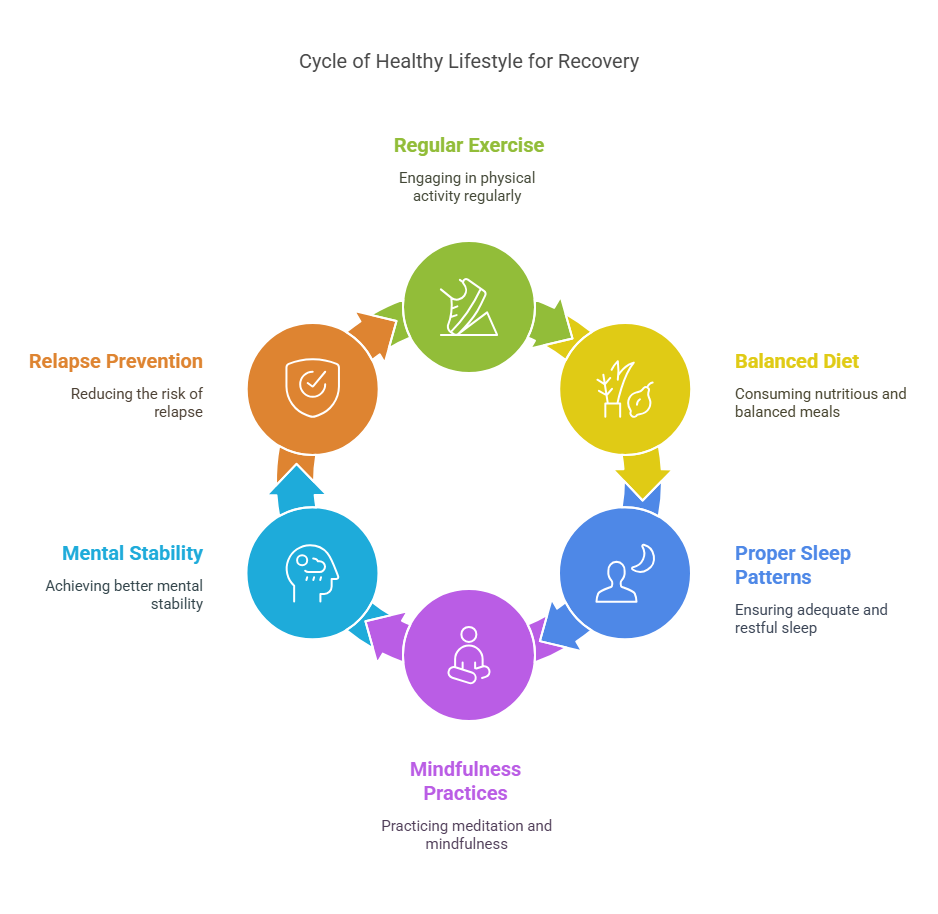
A person needs to embrace a healthy lifestyle to achieve long-term recovery success. Having regular exercise with a balanced diet and following proper sleep patterns helps people maintain both their mental and physical well-being.
Participating in hobbies together with focusing on mindfulness practices through meditation effectively lowers mental pressure. New interests combined with productive activities act as prevention tools for relapse and create better mental stability.
The Road to Recovery: Building a Better Future
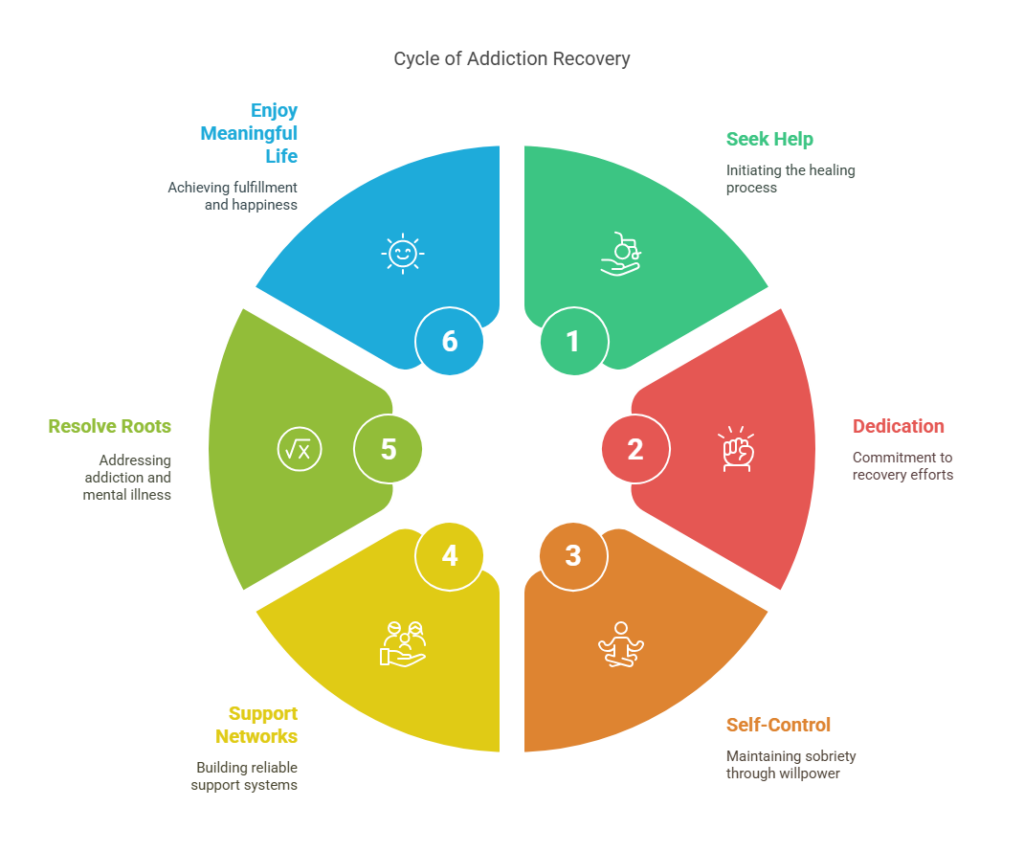
Recovery is a lifelong journey. A person needs dedication together with self-control and dependable support networks to preserve sobriety and develop better mental wellness over time.
Obtaining help represents the essential beginning of the healing process. People who focus on resolving addiction roots and mental illness problems can escape addiction cycles to enjoy meaningful live.

